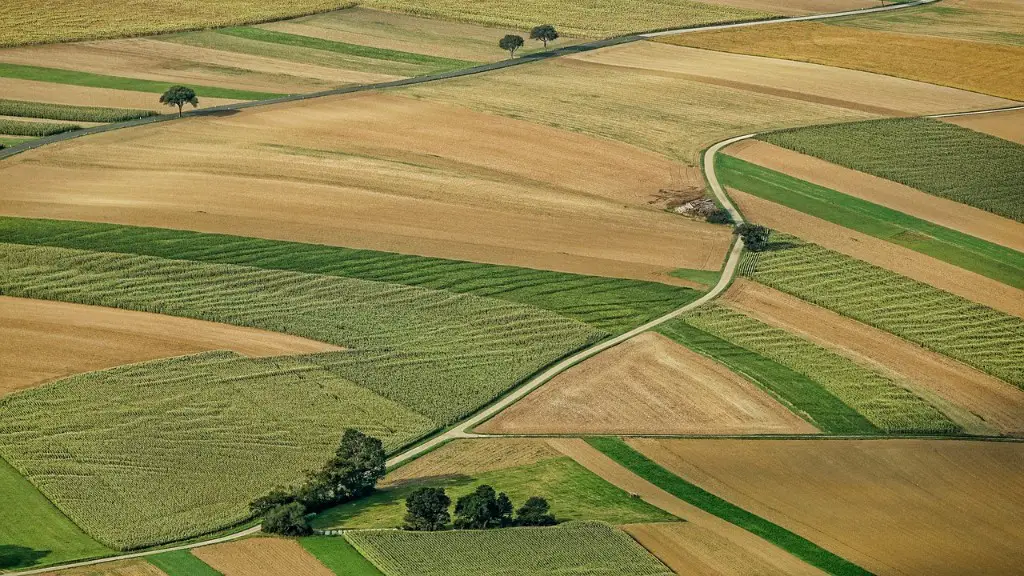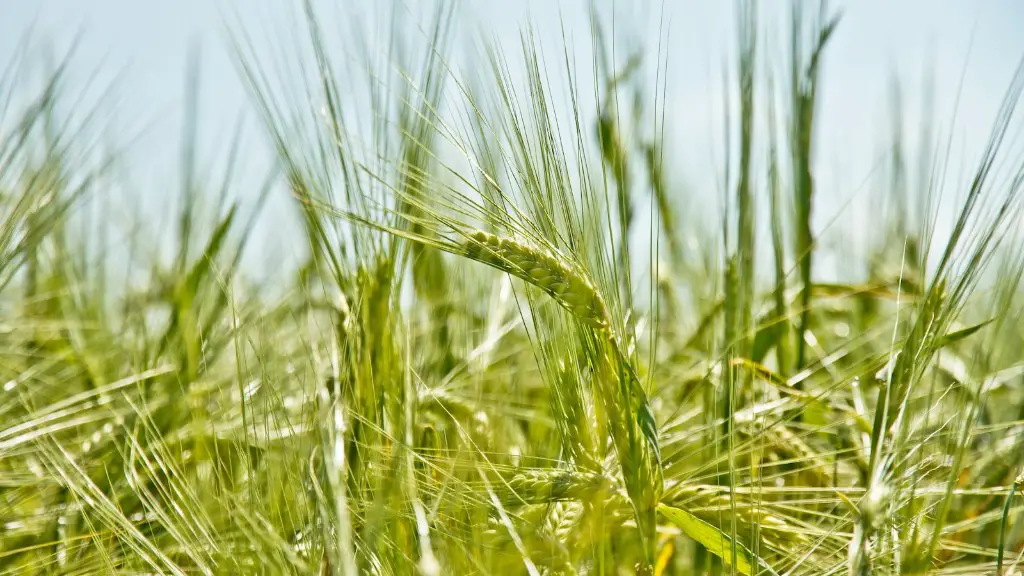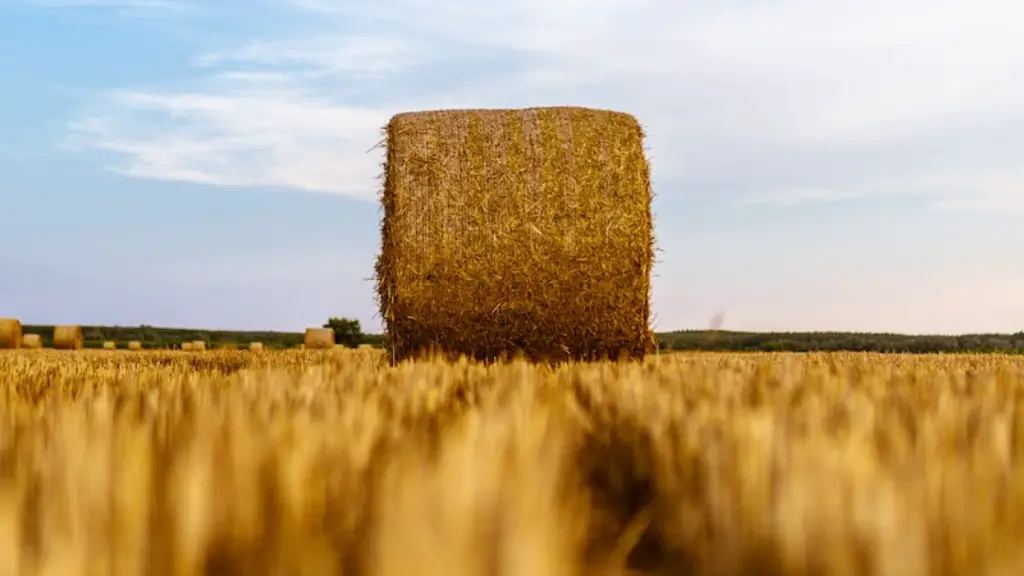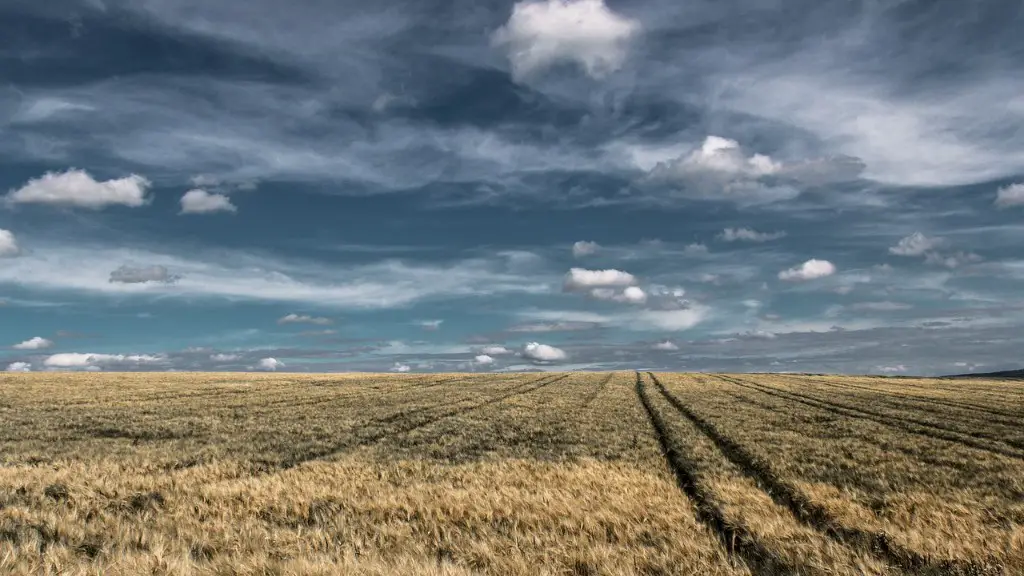Agriculture is a vital part of our environment that can provide many benefits to us. It can help us reduce our dependence on fossil fuels, increase our food security, and preserve our natural ecosystems. In this article, we’ll look at how agriculture can benefit the environment.
Agriculture helps to reduce our reliance on fossil fuels by providing a renewable energy source. Growing crops can produce biomass, which can be converted into electricity and biofuels. Biofuels, such as ethanol and biodiesel, can replace petrol and diesel in vehicles. Also, agricultural practices such as no-till farming can reduce the amount of carbon dioxide in the atmosphere.
Agriculture can also improve our food security. Farmers use crops to feed people and animals, and can also help to conserve soil health. With the right agricultural practices, farmers can also reduce the risk of erosion and loss of fertility of soil. This helps to ensure that there is enough food for everyone.
Agriculture also helps preserve our natural ecosystems. Healthy ecosystems are essential for the preservation of biodiversity and clean air and water. Organic agricultural practices can help to reduce the use of pesticides and other hazardous products, and can also help to prevent soil degradation.
On top of that, agriculture also helps to conserve soil health by reducing the amount of water and nutrients needed. This helps to reduce water pollution and can also increase the water supply in areas that are facing water shortages. Additionally, agricultural practices such as cover cropping can help to reduce soil erosion and preserve nutrient cycling.
Agriculture can also reduce air pollution. By using fewer fertilizers and other hazardous products, farmers can reduce their carbon footprint. Also, the use of aerial seeding and no-till farming can reduce the amount of dust and other particulates that can be released into the atmosphere.
Overall, agriculture can be seen as a great benefit to the environment. It can help reduce our reliance on fossil fuels, improve our food security, and help preserve our natural ecosystems. While there are certainly some challenges that come with agricultural practices, the benefits it can bring should not be overlooked.
Global Warming and Agriculture
Global warming can have a powerful and far-reaching impact on the environment, and agriculture is not immune. Studies have shown that rising temperatures caused by global warming can reduce yields in many agricultural regions. Furthermore, extreme and unpredictable weather patterns resulting from global warming can also cause crops to fail and damage infrastructure and livestock.
On the other hand, agriculture can also be a tool to combat global warming. By growing crops that are resilient to climate change, farmers can ensure that their crops are better adapted to a changing climate. Additionally, agriculture can play an important role in removing carbon dioxide from the atmosphere. Through the growing of certain crops, farmers can help to sequester carbon from the atmosphere.
Furthermore, agriculture can also reduce the amount of energy used in production. By using renewable energy sources and efficient farming practices, farmers can reduce their dependence on fossil fuels. This can help to reduce their carbon footprint and minimize their contribution to global warming.
In conclusion, global warming presents an enormous challenge for farmers, but it can also be seen as an opportunity to help mitigate its effects. By using renewable energy sources, increasing the use of sustainable practices, and sequestering carbon from the atmosphere, farmers can help to combat global warming and help protect the environment.
Water Conservation and Agriculture
Water conservation is an important part of preserving our environment, and agriculture is no exception. Agricultural practices can help to conserve water by reducing the amount of runoff from farms. This can be done through the use of effective irrigation systems and by improving soil health.
Additionally, agricultural practices can help to increase water efficiency. Farmers can use drought resistant crops, as well as efficient irrigation systems, to reduce their water use. Furthermore, farmers can use cover crops and other soil conservation practices to reduce the need for frequent irrigation.
Agriculture can also help to reduce water pollution. By monitoring fertilizer and pesticide use, farmers can ensure that their water sources are not contaminated. Additionally, farmers can also make use of water filtration systems and water reuse technologies to reduce the amount of water that is wasted.
In conclusion, water conservation is essential if we want to protect the environment, and agriculture can help to achieve this goal. By using effective irrigation systems, efficient agriculture practices, and water filtration technologies, farmers can help to conserve water and reduce water pollution.
Food Waste and Agriculture
Food waste is an increasingly serious environmental issue, and agriculture is not immune. Food waste can occur at many stages of the agricultural cycle, from production to consumption. Agricultural practices such as soil and water Conservation can help to reduce food waste.
Farms can also reduce food waste by using more efficient farming methods. For example, farmers can use no-till farming techniques which can reduce soil erosion and limit fertilizer and water usage. Additionally, farmers can also use cover crops, which can help to reduce waste and ensure soil fertility in the long run.
Furthermore, farmers can also help to reduce food waste by better managing their use of pesticides and fertilizers. By using less of these products, farmers can reduce the amount of waste water and help to protect the environment. Additionally, farmers can also adopt sustainable agricultural practices such as permaculture, which can help to reduce waste and improve soil health.
Finally, farmers can also help to reduce food waste by utilizing food waste disposal methods. By composting food waste, farmers can reduce the amount of food that ends up in landfills, and it can also provide a source of nutrients for the soil. This can help to reduce the need for costly fertilizers and help to preserve the environment.
In conclusion, food waste is a major environmental issue, and agriculture can help to reduce it. By adopting more efficient farming practices, managing the use of pesticides and fertilizers, and utilizing food waste disposal methods, farmers can help to reduce food waste and protect the environment.
Biodiversity and Agriculture
Biodiversity is essential for the health and functioning of any ecosystem, and agriculture has a major role to play in protecting it. For example, agricultural practices such as crop rotation can help to conserve biodiversity by providing a variety of habitats for plants, animals, and other species.
Farmers can also help to protect biodiversity by avoiding the use of monocultures. By planting a variety of crops and rotating them regularly, farmers can ensure that there is never too much of one species in one area. This will help to maintain a diverse and resilient ecosystem.
Furthermore, farmers can also use beneficial insect species to help maintain a healthy ecosystem. By planting plants that attract beneficial insects, such as ladybugs and bees, farmers can reduce the need for pesticides and keep harmful insects from damaging crops. This can help to preserve biodiversity and reduce the impact of pesticides on the environment.
Finally, farmers can also help to reduce the loss of native species by using integrated pest management, or IPM. By using a combination of cultural, biological, and chemical methods, farmers can reduce their reliance on pesticides and create a more diverse and resilient ecosystem.
In conclusion, biodiversity is essential for the health of any ecosystem, and agriculture can help to maintain it. By avoiding the use of monocultures, utilizing beneficial insect species, and using integrated pest management, farmers can help to protect biodiversity and maintain a healthy, diverse ecosystem.





